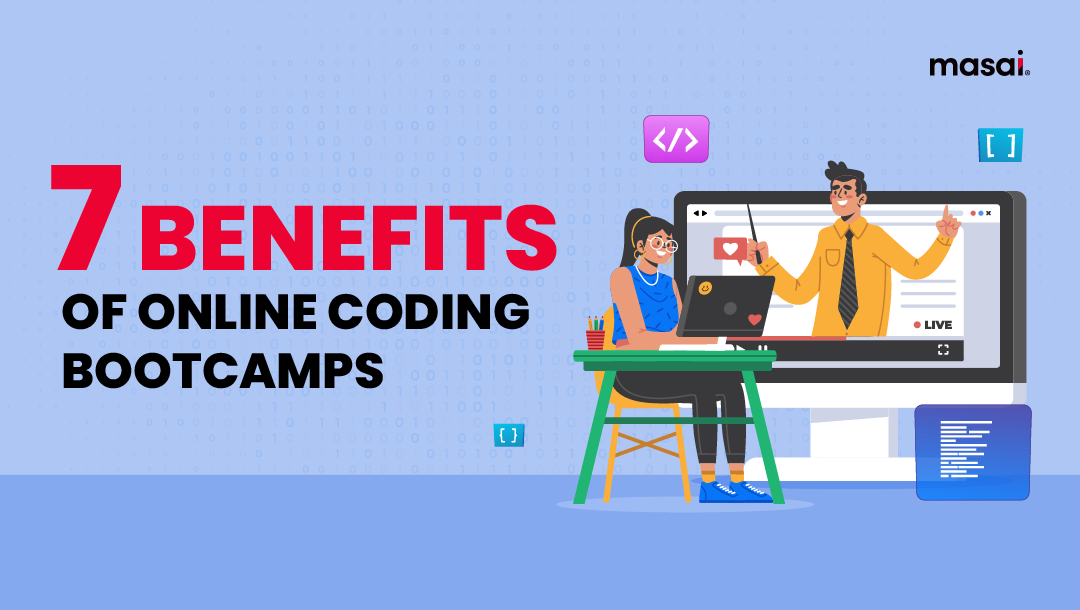Bootcamp Costs and Financing

The decision to enroll in a coding bootcamp is a significant investment, both financially and personally. Understanding the associated costs and available financing options is crucial for making an informed choice. This section details the typical expenses involved, explores various payment plans, and highlights potential funding avenues.
Bootcamp costs vary considerably depending on location, specialization, and the bootcamp’s reputation. Factors such as the intensity of the program (full-time vs. part-time), the duration, and the level of career services offered also influence the overall price.
Bootcamp Costs and Financing Options
The following table provides a general overview of bootcamp costs. Keep in mind that these are averages and can fluctuate significantly. It’s essential to research specific bootcamps for accurate pricing information.
| Factor | Average Low Cost (USD) | Average Mid-Range Cost (USD) | Average High Cost (USD) |
|---|---|---|---|
| Tuition Fees | 8,000 | 13,000 | 20,000 |
| Living Expenses (3 months) | 3,000 | 6,000 | 9,000 |
| Total Estimated Cost | 11,000 | 19,000 | 29,000 |
Financing options often include:
- Personal Savings: Many students utilize their savings to cover tuition and living expenses.
- Student Loans: Federal and private student loans can be used to finance bootcamps, though interest rates and repayment terms should be carefully considered. Examples include Sallie Mae and private lenders offering specialized tech education loans.
- Income Share Agreements (ISAs): Some bootcamps offer ISAs, where students pay a percentage of their income after securing a job. This option shifts risk from the student to the bootcamp.
- Scholarships and Grants: Numerous organizations offer scholarships specifically for coding bootcamps. These are often merit-based or target underrepresented groups in tech. Researching specific bootcamp scholarship programs and external organizations is crucial.
Bootcamp Payment Plans
Bootcamps typically offer various payment plans to make tuition more manageable. Common options include:
- Upfront Payment: Paying the full tuition fee at once often results in a discount.
- Installment Plans: These plans allow students to pay in monthly or quarterly installments over the duration of the program. Interest may or may not apply, depending on the bootcamp’s policy.
- Deferred Payment Plans: Some bootcamps allow students to defer payment until after graduation, often requiring a down payment or a guarantee of employment.
The implications of choosing a particular payment plan depend on individual financial circumstances. For instance, an upfront payment may require significant upfront capital, while installment plans spread the cost over time but may accrue interest. Deferred payment plans offer flexibility but might come with stricter terms.
Successful Crowdfunding Campaigns
Several individuals have successfully used crowdfunding platforms like GoFundMe or Kickstarter to raise funds for their bootcamp tuition. Successful campaigns often involve compelling narratives, clear budget breakdowns, and active engagement with potential donors. These campaigns showcase the dedication of prospective students and can attract support from family, friends, and even the wider community. For example, a compelling story about a career change or a personal mission to enter the tech industry could resonate with potential donors and generate significant funding. Detailed budget projections demonstrating responsible use of funds also enhance the campaign’s credibility.
Alternatives to Coding Bootcamps

Choosing a coding bootcamp isn’t the only path to a career in software development. Several viable alternatives offer different levels of structure, cost, and time commitment. Understanding these options allows you to select the best learning approach based on your individual circumstances, learning style, and financial resources. This section explores some of the most popular alternatives.
Online Courses and Platforms
Numerous online platforms offer structured coding courses, often at a fraction of the cost of a bootcamp. These platforms typically provide video lectures, coding exercises, quizzes, and community support. Popular examples include Coursera, edX, Udacity, Codecademy, and freeCodeCamp. These platforms cater to various skill levels, from absolute beginners to experienced developers seeking to specialize in a particular area. They offer flexibility, allowing learners to study at their own pace and convenience.
Self-Teaching Resources
Self-teaching is a cost-effective and flexible option, though it requires significant self-discipline and motivation. Numerous free resources are available online, including interactive tutorials, documentation, and open-source projects. Websites like freeCodeCamp, YouTube channels dedicated to coding tutorials, and online documentation for various programming languages provide ample learning materials. This approach necessitates a proactive learning strategy and the ability to independently overcome challenges.
University Computer Science Programs, Should i do a coding bootcamp
Traditional university computer science (CS) programs provide a comprehensive and in-depth education in computer science principles. These programs typically involve a four-year commitment, leading to a bachelor’s degree. They offer a structured curriculum, access to experienced professors, and opportunities for networking and research. While they are significantly more time-consuming and expensive than bootcamps, they provide a strong theoretical foundation and broader career opportunities.
Comparison of Alternatives
| Alternative | Cost | Time Commitment | Career Outcomes |
|---|---|---|---|
| Coding Bootcamp | $10,000 – $20,000+ | 3-6 months | Junior developer roles, often requiring further experience |
| Online Courses | $0 – $1,000+ per course | Varies greatly, from weeks to years | Depends on the courses taken and further self-learning; can lead to junior roles or specialization |
| Self-Teaching | $0 – minimal cost for books/resources | Varies greatly, potentially years | Highly variable, depending on dedication and acquired skills; may require significant portfolio building |
| University CS Program | $40,000 – $100,000+ | 4 years | Broad range of roles, often requiring further specialization |
Pros and Cons of Alternatives Compared to Bootcamps
Bootcamps offer a structured, immersive learning experience with career support, but are expensive and time-constrained. Online courses and self-teaching are more affordable and flexible, but require greater self-discipline and may lack the career services of a bootcamp. University programs offer a comprehensive education but are the most expensive and time-consuming. The best choice depends on individual needs and priorities.
Examples of Successful Self-Taught Programmers
Many successful programmers are self-taught. For example, Elon Musk, despite not having a formal computer science degree, is a highly successful entrepreneur in the tech industry. His success is a testament to the power of self-learning and dedication. Similarly, many open-source contributors have gained significant skills and recognition through self-directed learning, demonstrating that formal education is not a prerequisite for success in programming. These individuals often supplement their self-teaching with online resources, community involvement, and personal projects, showcasing the effectiveness of a self-directed approach.
Assessing Your Readiness for a Bootcamp: Should I Do A Coding Bootcamp

Choosing to embark on a coding bootcamp is a significant decision requiring careful self-assessment. Success hinges not only on technical aptitude but also on factors like financial stability, time management skills, and the ability to thrive in an intensive learning environment. Ignoring these crucial aspects can lead to frustration, burnout, and ultimately, a less-than-satisfactory outcome. A thorough evaluation of your readiness is paramount before committing to this intensive program.
Factors to Consider Before Enrolling
Before committing to a coding bootcamp, it’s crucial to honestly assess several key factors. These factors influence your ability to succeed and maximize your return on investment. Failing to consider these aspects could lead to a negative experience.
- Financial Stability: Bootcamps can be expensive. Carefully analyze your current financial situation, including savings, potential income during the program (if applicable), and post-bootcamp job prospects. Create a realistic budget encompassing tuition fees, living expenses, and potential loan repayments. Consider exploring financing options like personal loans or scholarships to alleviate financial strain.
- Time Commitment: Coding bootcamps are intensive, demanding a significant time commitment. Evaluate your current schedule and commitments, ensuring you have sufficient time for coursework, projects, and personal well-being. Balancing work, family, and the bootcamp requires careful planning and strong time management skills. A realistic schedule is crucial to avoid burnout.
- Learning Style: Bootcamps employ various teaching methodologies. Consider your preferred learning style – visual, auditory, or kinesthetic – and research bootcamps that align with it. Some bootcamps prioritize hands-on projects, while others emphasize lectures and theoretical knowledge. Choosing a bootcamp that complements your learning style will significantly enhance your learning experience.
Evaluating Bootcamp Credibility and Reputation
Choosing a reputable bootcamp is critical for your success. A thorough evaluation of a bootcamp’s credibility and reputation safeguards your investment and ensures a high-quality learning experience.
- Accreditation and Licensing: Investigate whether the bootcamp holds any relevant accreditation or licensing. While not always mandatory, accreditation often indicates a commitment to quality education and adherence to industry standards. Check for any relevant certifications or affiliations.
- Curriculum Review: Scrutinize the bootcamp’s curriculum, paying attention to the technologies taught, the depth of coverage, and the relevance to current industry demands. Look for a curriculum that is comprehensive, up-to-date, and aligns with your career goals. Compare curricula across different bootcamps.
- Instructor Qualifications and Experience: Examine the qualifications and experience of the instructors. Look for instructors with substantial industry experience and a proven track record of successful student outcomes. Check for instructor reviews or testimonials.
- Student Reviews and Outcomes: Read student reviews and testimonials on platforms like Course Report or Reddit. Pay attention to feedback regarding the teaching quality, career services, and overall student experience. Look for data on job placement rates and average starting salaries of graduates.
- Career Services and Support: Assess the bootcamp’s career services, including job placement assistance, resume building workshops, and networking opportunities. A strong career services program significantly increases your chances of securing a job after graduation. Inquire about the level of support offered after graduation.
Researching and Choosing a Bootcamp
Selecting the right bootcamp involves a systematic approach. A well-structured research process helps you make an informed decision that aligns with your goals and learning preferences.
Should i do a coding bootcamp – Begin by identifying your career goals. Do you want to become a front-end, back-end, or full-stack developer? Once you’ve defined your objectives, research bootcamps that specialize in your chosen area. Narrow down your options based on factors like location, cost, curriculum, and student reviews. Attend information sessions or demos to gain a firsthand understanding of the bootcamp’s teaching style and culture. Finally, compare your top choices and make an informed decision based on your priorities and preferences.


Tim Redaksi